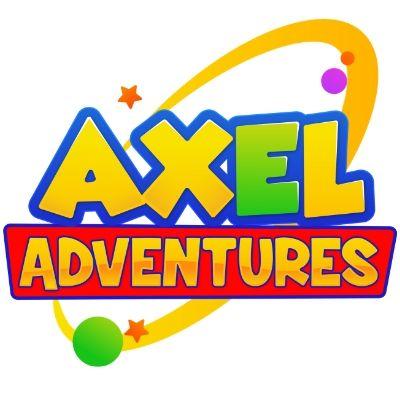Fine motor skills are the ability to use the smaller muscles in your hands, fingers, and wrists to perform tasks such as grasping, pinching, threading, tracing, and more. These skills are essential for your toddler's development and independence, as they enable them to do things like eating, dressing, writing, and playing.
In this guide, we will explore the benefits of fine motor skills, the milestones your toddler should reach, and some fun and easy activities you can do at home or in the classroom to help your toddler improve their fine motor skills. We will also introduce you to some of the best educational toys for kids that promote fine motor skills development and play-based learning.
Benefits of Fine Motor Skills
Fine motor skills have many benefits for your toddler's physical, cognitive, social, and emotional development. Here are some of them:
- These skills help your toddler develop hand-eye coordination, which is the ability to coordinate the movements of the eyes and hands to perform a task. Hand-eye coordination is important for many activities, such as catching a ball, drawing a picture, or cutting with scissors.
- These skills help your toddler develop dexterity, which is the skill and ease of using the hands and fingers. Dexterity is important for manipulating objects, such as buttons, zippers, pencils, or beads.
- These skills help your toddler develop strength and endurance in their hand and finger muscles. This is important for preventing fatigue and injury when doing tasks that require fine motor skills for a long time, such as writing or typing.
- These skills help your toddler develop sensory awareness and integration, which is the ability to process and respond to sensory information from the environment. Sensory play activities can stimulate your toddler's senses of touch, sight, hearing, smell, and taste, and help them learn about different textures, shapes, colors, sounds, smells, and flavors.
- These skills help your toddler develop cognitive skills, such as attention, memory, problem-solving, creativity, and logic. Fine motor activities can challenge your toddler's mind and encourage them to focus, remember instructions, find solutions, express themselves, and think critically.
- These skills help your toddler develop social and emotional skills, such as communication, cooperation, self-regulation, confidence, and self-esteem. Fine motor activities can provide opportunities for your toddler to interact with others, share materials, follow rules, take turns, express emotions, cope with frustration, and feel proud of their achievements.
Fine Motor Skills Milestones
Babies and toddlers develop fine motor skills at their own pace. Some children develop some skills earlier than others, and that’s perfectly normal. However, there are some general milestones that you can use as a guide to monitor your toddler's progress and identify any potential delays or difficulties.
Here are some examples of fine motor skills milestones for toddlers between 12 months and 3 years old:
- By 12 months old: Your toddler can feed themselves finger foods; grab small objects with their thumb and index finger (pincer grasp); bang things together; hold a toy with one hand; turn one page of a book at a time; scribble on paper; stack blocks; squeeze an item with their hands.
- By 18 months old: Your toddler can use a spoon; turn a doorknob; wash their hands; hold a crayon with their fingertips and thumb; thread a large bead onto a string; put coins into a piggy bank; make marks on paper with different directions; build a tower of four or more blocks; turn pages of a book two or three at a time.
- By 2 years old: Your toddler can use a fork; unzip a zipper; brush their teeth; draw circles and lines; cut paper with scissors; thread small beads onto a string; sort objects by shape or color; build a bridge or a house with blocks; turn pages of a book one at a time.
- By 3 years old: Your toddler can button and unbutton large buttons; zip up a zipper; comb their hair; draw simple shapes like squares and triangles; cut along a straight line with scissors; thread small beads onto a thin string; complete simple puzzles; copy letters or numbers.
If you notice that your toddler is not meeting these milestones or has trouble with fine motor skills that affect their daily life, you may want to consult with your pediatrician or an occupational therapist. They can assess your toddler's fine motor skills and provide you with guidance and support.
Fine Motor Skills Activities for Toddlers
One of the best ways to help your toddler improve their fine motor skills is to provide them with plenty of opportunities to play. Play-based learning is a method of learning that allows children to actively and imaginatively engage with people, objects, and the environment. Play-based learning has many benefits for your toddler's development, such as:
- Learning within authentic contexts. Play-based learning helps children learn through discovery rather than being told facts. This enables deeper, contextualized learning where children don't just learn what is true but why it is true.
- Promotion of language and social skills. Play-based learning helps children develop their communication, cooperation, and self-regulation skills. They can observe, mimic, and test language alongside peers and adults. They can also share materials, follow rules, take turns, and express emotions during play.
- Prolonged engagement of children. Play-based learning helps children enjoy learning, which can enhance their motivation, engagement, and focus. They can also choose their own pace and level of challenge during play, which can increase their confidence and self-esteem.
There are many types of play-based activities that you can do with your toddler to help them develop their fine motor skills. Here are some examples:
- Poking and pinching activities. These activities help your toddler practice their pincer grasp and strengthen their hand muscles. You can use materials such as play dough, clay, foam, or sponge and let your toddler poke them with their fingers or tools like toothpicks, straws, or chopsticks. You can also let your toddler pinch and squeeze items like pom poms, cotton balls, or clothespins.
-
Threading and beading activities. These activities help your toddler develop their hand-eye coordination and dexterity. You can use materials such as string, yarn, pipe cleaners, or shoelaces and let your toddler thread them through items like beads, pasta, cereal, or buttons. You can also let your toddler make necklaces, bracelets, or garlands with their creations.

- Tracing and drawing activities. These activities help your toddler develop their fine motor control and creativity. You can use materials such as paper, cardboard, chalkboard, or whiteboard and let your toddler trace shapes, letters, or numbers with their fingers or tools like crayons, markers, chalks, or pencils. You can also let your toddler draw pictures or patterns with their own imagination.
- Cutting and gluing activities. These activities help your toddler develop their scissor skills and hand-eye coordination. You can use materials such as paper, cardboard, magazines, or newspapers and let your toddler cut them into different shapes and sizes with scissors. You can also let your toddler glue them together to make collages or crafts.
- Stacking and sorting activities. These activities help your toddler develop their fine motor skills and cognitive skills such as problem-solving and logic. You can use materials such as blocks, cups, or cans and let your toddler stack them up and knock them down. You can also let your toddler sort them by different attributes such as size, color, or shape.
- Finger painting and sensory play activities. These activities help your toddler develop their sensory awareness and integration, as well as their creativity and self-expression. You can use materials such as paint, water, sand, rice, or slime and let your toddler explore them with their fingers or tools like brushes, spoons, or funnels. You can also let your toddler make art with their finger prints or hand prints.
Another way to help your toddler improve their fine motor skills is to provide them with some educational toys that are designed to promote fine motor skills development and play-based learning. These toys are not only fun and engaging, but also safe and durable. They can also help your toddler learn other concepts such as numbers, shapes, colors, animals, and more.
Here are some examples of fine motor skills toys for toddlers that you can find online or at your local educational toy store:
-
Nuts and Bolts Skills Set. This toy helps your toddler practice their twisting and turning skills by matching and screwing colorful nuts and bolts together. It also helps them learn about shapes, colors, and patterns.

- Kids Drill & Construction Set. This toy helps your toddler practice their drilling and building skills by using a toy drill to create different designs on a board. It also helps them learn about shapes, colors, and spatial awareness.
- Latches and Doors Busy Board. This toy helps your toddler practice their opening and closing skills by using different types of latches and doors on a board. It also helps them learn about animals, numbers, and colors.
- Spike The Fine Motor Hedgehog. This toy helps your toddler practice their poking and pinching skills by inserting colorful pegs into a hedgehog's back. It also helps them learn about colors and counting.
- Shape Sorting Cube. This toy helps your toddler practice their matching and fitting skills by putting different shapes into a cube with corresponding holes. It also helps them learn about shapes, colors, and problem-solving.
Conclusion
Fine motor skills are important for your toddler's development and independence. They enable them to do many things like eating, dressing, writing, and playing. You can help your toddler improve their fine motor skills by providing them with plenty of opportunities to play and explore. You can also use some educational toys that are designed to promote fine motor skills development and play-based learning. You can also monitor your toddler's progress by using some general milestones as a guide. If you have any concerns about your toddler's fine motor skills, you can seek professional help from your pediatrician or an occupational therapist.
We hope this guide has given you some useful information and tips on fine motor skills activities for toddlers. If you are looking for some educational toys for kids that can help your toddler develop their fine motor skills and other skills, you can check out our shop section. We have a wide range of educational toys for kids of all ages, such as hand-eye coordination toys, sensory play toys, fine motor skill toys, and more. You can also find more resources and tips on our blog about play-based learning, sensory play, developmental milestones, and more. Visit our shop today and discover the best educational toys for kids!





